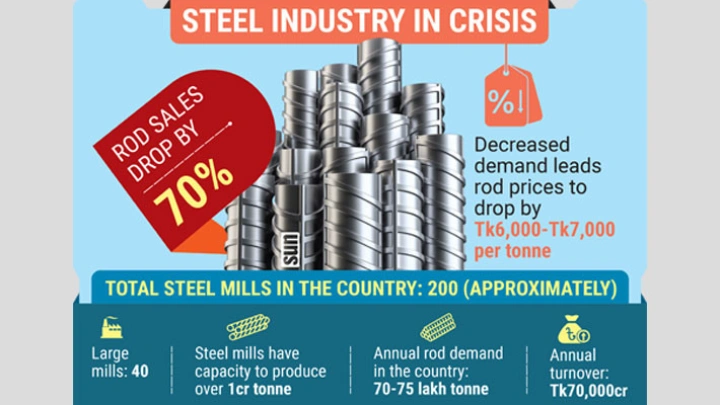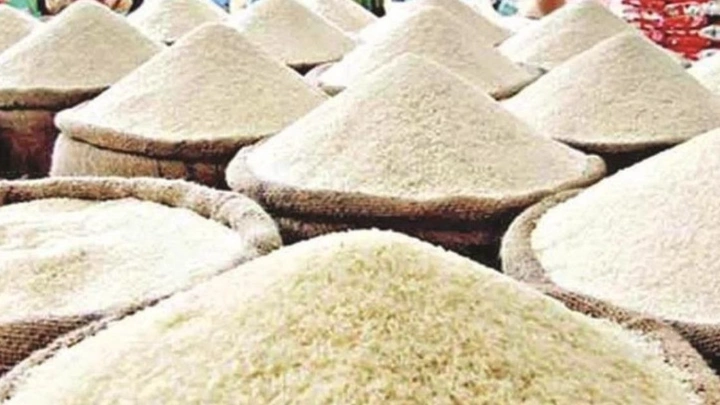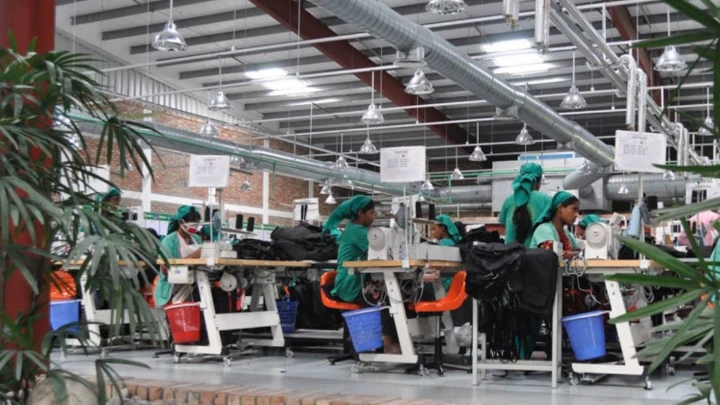Export restrictions push up higher prices of various essential commodities
Shining BD Desk || Shining BD
Export restrictions by different countries are largely contributing to scarcity and higher prices of various essential commodities, including rice, wheat and soybean oil, in Bangladesh and elsewhere in the world.
The prices of key essentials, including wheat, rice and soybean oil, have increased in the country due to these restrictions, market insiders have said.
Some 19 countries have imposed export restrictions on 27 food items after the Russia and Ukraine war, according to the Food Export & Fertilizer Restrictions Tracker developed by David Laborde of the International Food Policy Research Institute (IFPRI).
Lebanon imposed export restrictions on processed fruits and vegetables, milled grain products, sugar and bread while Algeria on pasta, wheat derivatives, vegetable oil and sugar.
Serbia imposed export restrictions on corn, sunflower oil while Burkina Faso on millet flour, corn flour and sorghum flour, Russia on rapeseed, Tunisia on fruits and vegetables, Turkey on butter, cooking oils, red Lentils, beans, beef meat, sheep meat and goat meat and Kosovo on wheat, corn, flour, vegetable oil, salt and sugar.
Kyrgyzstan imposed export restrictions on bovine meat, feed products, wheat, meslin, flour, vegetable butter, sugar, sunflower seed, eggs, barley and oats, India on wheat flour, semolina, maida, sugar and wheat, Bangladesh on rice, Kazakhstan on sugar, Georgia on wheat and barley, Iran on potatoes, eggplants, tomatoes and onion, Argentina on beef meat, Pakistan on Sugar, Kuwait on chicken meat, grains and vegetable oils, Afghanistan on wheat and Ghana on maize, rice and soybean.
Wheat, wheat flour, rice, corn, sugar, sunflower oil, butter, cooking oils, beef, red lentils, fruits, vegetables and maize are among the items affected by the export restrictions.
International Momentary Fund (IMF) also forecasts that consumer prices to rise by 8.3 per cent globally this year.
The global turmoil, drought, fertilizers crisis and supply shocks have been increasing vulnerability to food shortages in the world, said farm economist Prof ASM Golam Hafiz.
Export restrictions on food items will put additional pressure on available food stocks, push prices up and threaten the food security of many countries, he said.
Bangladesh is also facing a crisis of increasing prices of essential commodities since the war started, said the economist.
The war has triggered a huge spike in wheat prices, with Russia and Ukraine among the biggest exporters of the commodity.
Many countries including India, Kosovo, Kyrgyzstan and Georgia have banned wheat export, as well as other food exports due to the crisis.
Apart from the previous export ban, on September 8, India banned shipments of broken rice and imposed a 20 per cent duty on exports of various other types of rice.
The latest restriction announced by India, the world’s biggest exporter of grain, increased rice price by 5 per cent in Asia and is also expected to rise further gradually.
The restriction has forced buyers to search for alternative supplies from Vietnam, Thailand and Myanmar where sellers are holding off on deals as prices rise, said market insiders.
The price of rice has increased again in the country over the last week by Tk 2-3 per kg after a declining trend two weeks earlier.
Some wholesalers at Mohammadpur Krishi Market said the price of rice increased by Tk 100-150 per sack (50kg) at the miller level while the supply of rice also declined.
Mehedy Hasan of Bilchand Rice Agency of the market said millers are not providing an adequate amount of rice according to our demand.
The price of all varieties of rice has increased by TK 2-3 per kg in a week in the capital.
The price of coarse rice Shorna increased by Tk 2 per kg and was selling at Tk 50-52 per kg, BR-28 price increased by Tk 2 per kg and was selling at Tk 60-62 per kg.
Some fine quality rice prices increased to Tk 70-84 per kg from TK 65-80 per kg a week earlier.
India has imposed a ban on sugar export from June 1, Kazakhstan imposed a ban on sugar export from May 23 and Pakistan imposed a ban on April 15 this year, according to Food Export & Fertilizer Restrictions Tracker.
The price of sugar has increased by 3.93 percent in a week and 5.71 per cent in a month, according to the Trading Corporation of Bangladesh (TCB).
The country witnessed the latest hike in sugar price on September 15 and its price increased to Tk 90-95 per kg from Tk 88-90 per kg, according to TCB.
According to Bangladesh Trade and Tariff Commission (BTTC), the annual demand for wheat in the country is nearly 7 million tonnes, of which 6 million tonnes are imported.
Bangladesh is the third-biggest rice producer in the world with 35 million tonnes a year.
The country imported 987.41 thousand tonnes of rice and 4,012.12 thousand tonnes of wheat in FY 2021-22, according to the Ministry of Food.
Shining BD























